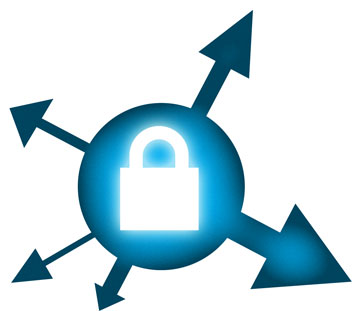Experts who specialize in online security consistently emphasize the critical importance of being cautious when entering credit card details on the internet. They stress that it is essential to ensure the security of the webpage before proceeding with any transactions. This advice, which has been reiterated by security professionals over the past decade, underscores the crucial nature of protecting sensitive information online. This awareness has permeated throughout individuals of all age groups, including the elderly population. For example, my Grandma, prior to making online purchases from well-known retailers such as Amazon.com or Ebay, meticulously follows the necessary steps to verify the website’s security. By adopting a proactive approach, she diligently checks for the presence of a small lock icon and the “https” protocol at the start of her browser’s address bar to confirm a secure connection. This practice exemplifies the vigilant measures people are taking to safeguard their personal and financial information while engaging
In today’s digital age, where cyber threats are becoming increasingly sophisticated, it is more important than ever to be vigilant when it
But your credit card data isn’t the only information you want to keep secure online, right? At least for me it isn’t. We expose all kinds of information about ourselves online every day, and we often don’t even realize we’re doing it.

“HTTPS Everywhere” is a browser extension available for Mozilla Firefox and Google Chrome designed to make your web browsing more secure. It does this by enabling SSL (Secure Socket Layer) on any website that it can. SSL is the encryption technology used to secure internet traffic like shopping site and online banking. HTTPS Everywhere enables SSL for any website it knows how to enable secure connections on, which is currently almost 3000 websites including the websites for major airlines, universities and social media websites.
The HTTPS Everywhere website explains:
HTTPS Everywhere is produced as a collaboration between The Tor Project and the Electronic Frontier Foundation. Many sites on the web offer some limited support for encryption over HTTPS, but make it difficult to use. For instance, they may default to unencrypted HTTP, or fill encrypted pages with links that go back to the unencrypted site. The HTTPS Everywhere extension fixes these problems by using a clever technology to rewrite requests to these sites to HTTPS.
I am unable to process the request due to encountered difficulties.
Once installed, the only indication that HTTPS Everywhere is installed is a small icon in your browser. Clicking the browser icon allows changing settings for HTTPS Everywhere, including enabling or disabling certain websites from being securely redirecting, or disabling HTTPS Everywhere altogether.
HTTPS Everywhere works behind the scenes redirecting unsecured connections to secured versions without needing any user interaction. If you value your privacy online, you would be wise to consider using HTTPS Everywhere.
HTTPS Everywhere can be freely downloaded from the EFF website here: https://www.eff.org/https-everywhere
